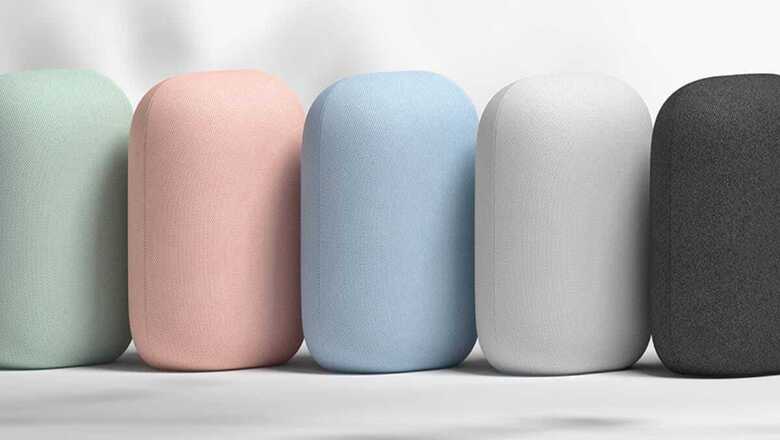
views
Google has finally made a meaningful addition to its smart speaker line-up, after a bit of a gap. The new Google Nest Audio succeeds the Google Home, which has been around for quite a few years now, and was getting a bit long in the tooth. The price of the new Google Nest Audio is $99.99, and it will be available in the US, Canada and India from October 5. The India pricing is yet to be officially confirmed, and it is also not clear whether the Google Nest Audio will continue to be a Flipkart exclusive. The timing couldn’t have been better, after Amazon announced the new Echo line-up of smart speakers, just a few days ago. The Google Nest Audio will be available in five colours—Chalk, Charcoal, Sand, Sky and Sage, though it isn’t confirmed yet which all colour options will be available in India, at least initially. Update: Google has confirmed that the Nest Audio will be available in India on Flipkart and at other retail outlets later this month. Also, the Nest Audio will be available in India in two colors, Chalk and Charcoal, at least at this time.
The Google Nest Audio now packs in a 75mm woofer and a 19mm tweeter—that means a 2.9-inch woofer and a 0.74-mm tweeter. Google says this will be 75% louder and have 50% more powerful bass than the Google Home smart speaker that it succeeds. The company says they put in as many as 5000 hours of tuning for the Google Nest Audio. There were tweaks to the design as well, such as the architecture of the tweeter, the design of the grill, the fabric used and the overall construction. The Google Nest Audio will also use a feature called media EQ that will allow the Nest Audio to automatically tune itself for the content that you are listening to—music, news, podcasts, audiobooks and also factors in the ambient noise to ensure it remains audible over any potential din.
Have You Also Read?
Amazon Makes Conversations With Alexa Seriously Smart And Echo Speakers Are Cooler Than Ever Before
The Google Nest Audio can also be set up as a stereo pair with another Google Nest smart speaker and can also be set as a group of speakers in the home. This plugs in to the Google’s multi-room audio feature that was rolled out a few weeks ago to allow dynamic group cast of audio. Google also says that the enclosure of the Google Nest Audio is made of 70 percent recycled plastic.
The launch of the Google Nest Audio comes just after Amazon announced the 2020 refresh to the Amazon Echo smart speaker line, which includes the serious upgrades to the Echo speaker that now bundles in the power that the Echo Plus usually offered.
The new Amazon Echo speaker features a spherical design which is very different from the vertical designs of the Echo speakers over the past few generations. In fact, Amazon is combining the capabilities of the Echo and the Echo Plus in one device—at present, they are sold as separate devices in the current line-up. The new Echo gets a 3-inch woofer, dual-firing tweeters which are placed at an angle for wider sound dispersion and Dolby audio processing, all of which combines to give it some serious audio firepower. The new Echo will also be able to do an automatic sound adjustment according to the acoustics and the layout of the room you place it in—this is something we have already seen in the Echo Studio smart speaker.
Inside, the processing is handled by the first-generation Amazon AZ1 Neural Edge processor. Amazon says this all-new silicon module is purpose-built for accelerating machine learning applications, which means the powerful inference engines can run quickly. These include the all-neural speech recognition model that will be able to process requests much faster, allowing Alexa to be responsive sooner.




















Comments
0 comment